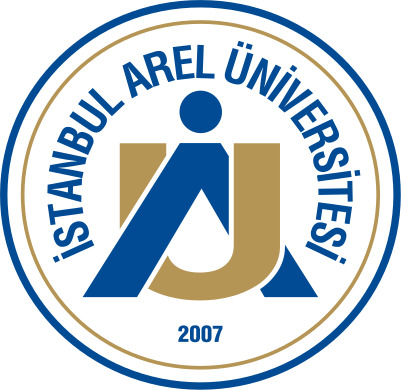Civil Aviation Cabinet Services
Overview
<!-- wp:paragraph --> <p><strong>Program Description</strong><br><strong>Civil Aviation Cabinet Services at Istanbul Arel University: Pioneering Excellence in Aviation Management</strong></p> <!-- /wp:paragraph --> <!-- wp:paragraph --> <p>The Civil Aviation Cabinet Services program at Istanbul Arel University is a specialized course designed to provide students with the knowledge and skills necessary to succeed in the dynamic field of civil aviation. Focusing on aviation management, air traffic control, safety regulations, and customer service, this program prepares students to become leaders in the aviation industry. The program emphasizes practical, hands-on training combined with theoretical knowledge, allowing students to develop a comprehensive understanding of aviation operations, airport management, and the regulatory framework that governs the industry. With a focus on efficiency, safety, and innovation, students will be well-prepared for a wide range of roles within the aviation sector, from airline operations to airport administration and civil aviation safety.</p> <!-- /wp:paragraph --> <!-- wp:paragraph --> <p><strong>Program Mission and Vision</strong><br>The mission of the Civil Aviation Cabinet Services program at Istanbul Arel University is to educate and train future aviation professionals who possess the leadership, technical, and managerial skills necessary to thrive in the global aviation industry. The program aims to produce graduates who are capable of handling complex aviation operations, ensuring the safety and comfort of passengers, and adhering to international aviation standards. Its vision is to become a leading institution in aviation education, shaping professionals who will contribute to the growth and safety of the aviation sector worldwide.</p> <!-- /wp:paragraph --> <!-- wp:paragraph --> <p><strong>Curriculum Structure</strong><br>The Civil Aviation Cabinet Services program offers a thorough education that integrates theory, technology, and hands-on experience. Key areas of the curriculum include:</p> <!-- /wp:paragraph --> <!-- wp:paragraph --> <p><strong>Introduction to Civil Aviation</strong>: Students are introduced to the aviation industry, exploring its history, structure, and the various components that contribute to the functioning of airports, airlines, and aviation services. The course provides an overview of the global aviation system, including key players, regulations, and trends.</p> <!-- /wp:paragraph --> <!-- wp:paragraph --> <p><strong>Aviation Safety and Security</strong>: Safety and security are critical in aviation. This course covers the principles of aviation safety, including international safety standards, risk management, and emergency response protocols. Students learn about security measures for both passengers and aircraft, as well as aviation safety management systems.</p> <!-- /wp:paragraph --> <!-- wp:paragraph --> <p><strong>Airline Operations and Management</strong>: Students gain an in-depth understanding of how airlines operate, including flight scheduling, ticketing, crew management, and cargo handling. The course explores airline revenue management, customer service, and operational efficiency, preparing students to manage airline operations effectively.</p> <!-- /wp:paragraph --> <!-- wp:paragraph --> <p><strong>Airport Management</strong>: This course focuses on the management of airports, including infrastructure, security, passenger services, and air traffic control systems. Students learn about airport planning, operations, and maintenance, as well as the role of airports in the broader aviation ecosystem.</p> <!-- /wp:paragraph --> <!-- wp:paragraph --> <p><strong>Air Traffic Control and Navigation</strong>: Students are introduced to the critical role of air traffic control in maintaining safe and efficient flight operations. The course covers air traffic control procedures, communication protocols, navigation systems, and the role of air traffic controllers in coordinating air traffic flow.</p> <!-- /wp:paragraph --> <!-- wp:paragraph --> <p><strong>Aviation Law and Regulations</strong>: This course provides an overview of the legal and regulatory framework governing civil aviation. Students explore international aviation law, the role of regulatory bodies like the International Civil Aviation Organization (ICAO), and national laws related to air transport, passenger rights, and aviation safety.</p> <!-- /wp:paragraph --> <!-- wp:paragraph --> <p><strong>Passenger and Cargo Services</strong>: Students study the operational aspects of passenger and cargo services, including ticketing, baggage handling, and customer service. The course also covers cargo logistics and the management of air freight operations, emphasizing customer satisfaction and operational efficiency.</p> <!-- /wp:paragraph --> <!-- wp:paragraph --> <p><strong>Aviation Communication Systems</strong>: Effective communication is essential in aviation. This course covers communication protocols and technologies used in the aviation industry, including radar systems, satellite communication, and air-to-ground communication. Students learn about the importance of communication in air traffic control and airport operations.</p> <!-- /wp:paragraph --> <!-- wp:paragraph --> <p><strong>Sustainability and Environmental Impact in Aviation</strong>: With increasing global awareness of environmental issues, this course addresses the challenges and strategies for reducing the environmental impact of aviation. Students explore topics such as fuel efficiency, green technologies, and sustainable practices in airport and airline operations.</p> <!-- /wp:paragraph --> <!-- wp:paragraph --> <p><strong>Crisis Management in Aviation</strong>: This course prepares students to handle emergencies and crises in the aviation industry. Topics include emergency response planning, risk assessment, dealing with aviation disasters, and managing the public relations aspect of a crisis. Students learn how to develop and implement crisis management strategies.</p> <!-- /wp:paragraph --> <!-- wp:paragraph --> <p><strong>Leadership and Professional Development</strong>: In addition to technical skills, this course focuses on developing leadership qualities and professional skills necessary for career advancement in the aviation industry. Students learn about teamwork, conflict resolution, communication, and ethical decision-making.</p> <!-- /wp:paragraph --> <!-- wp:paragraph --> <p><strong>Capstone Project and Internship</strong>: The program culminates in a capstone project and internship, where students gain practical experience in the aviation industry. They apply their theoretical knowledge in real-world settings, working with aviation professionals to solve complex challenges and improve operations.</p> <!-- /wp:paragraph --> <!-- wp:paragraph --> <p><strong>State-of-the-Art Facilities and Labs</strong><br>Istanbul Arel University provides students with access to cutting-edge aviation labs, simulation rooms, and classrooms equipped with the latest technology used in aviation management. These facilities allow students to engage in real-world simulations, role-playing exercises, and hands-on training in aviation operations and management.</p> <!-- /wp:paragraph --> <!-- wp:paragraph --> <p><strong>Emphasis on Practical Experience and Industry Collaboration</strong><br>The Civil Aviation Cabinet Services program emphasizes the importance of practical experience in preparing students for careers in aviation. Through internships with airlines, airports, and regulatory agencies, students gain valuable industry exposure and professional experience. Collaboration with industry experts and participation in aviation-related events further enhances students’ learning and career prospects.</p> <!-- /wp:paragraph --> <!-- wp:paragraph --> <p><strong>Career Opportunities</strong><br>Graduates of Istanbul Arel University’s Civil Aviation Cabinet Services program are well-prepared for a variety of careers within the aviation industry. Career options include positions in airport management, airline operations, air traffic control, aviation safety and security, customer service, cargo logistics, and aviation consulting. Graduates can work for international airlines, government agencies, airport authorities, or aviation service providers, or pursue further education in aviation management or related fields.</p> <!-- /wp:paragraph --> <!-- wp:paragraph --> <p><strong>Shaping the Future of Aviation</strong><br>Istanbul Arel University’s Civil Aviation Cabinet Services program equips students with the skills, knowledge, and experience needed to excel in the rapidly evolving aviation sector. By combining theoretical education with hands-on training and industry exposure, the program ensures that graduates are ready to meet the demands of the aviation industry. Students emerge from the program prepared to contribute to the safe, efficient, and sustainable growth of the aviation sector, while demonstrating leadership in the field.</p> <!-- /wp:paragraph -->
Program Description
The Civil Aviation Cabinet Services program at İstanbul Arel University offers a comprehensive curriculum designed to prepare students for successful careers in this dynamic field. The program combines theoretical knowledge with practical skills, ensuring graduates are ready for the challenges of the industry.
The program is taught by experienced faculty members who are leaders in their respective fields, providing students with insights into current industry practices and future trends.
Curriculum Highlights
- Advanced Research Methods: Learn cutting-edge research techniques and methodologies.
- Industry Analysis: Explore current industry trends and develop analytical skills.
- Leadership and Management: Develop essential leadership skills for managing teams and projects.
- Innovation and Entrepreneurship: Cultivate creative thinking and entrepreneurial mindset.
- Digital Transformation: Understand how technology is reshaping industries and businesses.
- Sustainable Development: Explore environmentally sustainable practices and their implementation.
- Global Markets: Study international market dynamics and global business operations.
- Technology Integration: Learn to leverage technology for improved business outcomes.
Requirements:
- Bachelor's degree (for Master's programs) or equivalent qualifications.
- Proven English language proficiency (IELTS 6.5+ or equivalent).
- Complete transcripts from previous education.
- A compelling letter of motivation explaining your interest in the program.
- Two letters of recommendation from academic or professional references.
- Valid passport with appropriate visa status or eligibility.
Benefits:
- World-class faculty with extensive industry experience.
- Modern campus facilities and cutting-edge learning environments.
- Strong industry partnerships providing networking opportunities.
- Internship opportunities with leading companies in the field.
- Comprehensive career services including job placement assistance.
- Access to a global alumni network for lifelong professional connections.
Begin your educational journey today.
Apply now and take the first step towards your future.






